Legend says that Chinese civilization is 5,000 years old. But some argued they were only 3,200 years old. Regardless, the fact remains that while the Chinese civilization survives thousands of years, the Roman Empire did not. Throughout the history, the empires and kingdoms of ancient China had gone through uncountable collapses and rises.
So when Chinese President Xi Jinping said in May that one civilization forcing itself on another would be “stupid” and “disastrous”, he was sending a warning to U.S. President Donald Trump to stop hallucinating about asserting race superiority against others. Instead the Chinese leader urged on nations to respect each other, as Trump tries to use tariffs to force China to kowtow to America.
The economic simpleton of Donald Trump says that because China exports more to the U.S., a trade war can be easily won by slapping the Middle Kingdom with tariffs. The U.S. imported a record US$539.5 billion in goods from China in 2018. By contrast, the U.S. shipped a much smaller US$120.3 billion in goods to China. Hence, the US$419.2 trade deficit.
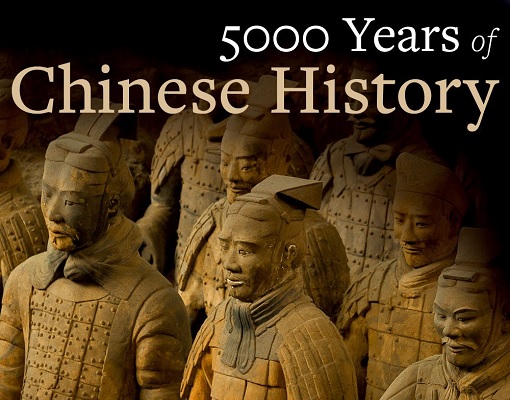
In a nutshell, China’s heavy dependence on the United States for its export is itself Chinese’s Achilles Heel. Trump has just claimed that his tariff war with China is working after Beijing announced that its annual rate of expansion had slowed from 6.4% to 6.2% in the second quarter of 2019 – its slowest pace since 1992.
As usual, Trump also falsely claimed that his tariffs are paid for by China, not by the U.S. taxpayers. However, economists – again – disagreed with the president’s inaccurate conclusion, pointed out that China’s economy was still growing more than two times as fast as that of the U.S. and that the tariffs imposed on Chinese goods were hitting Americans.
Trevor Greetham at Royal London Asset Management replied to Trump’s rhetoric – “Sorry to break it to you, but tariffs are paid by the importer – US taxpayers in this instance.” The 6.2% GDP figure was within the government’s target range of 6.0%-6.5% for the year, down from the 6.6% growth China posted in 2018. It means while the GDP has indeed taken a hit, China’s economy did not collapse.
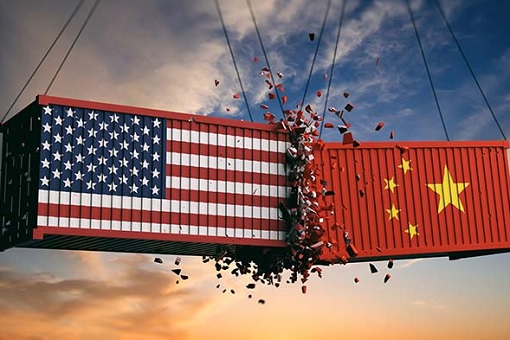
But if the Chinese economy fails to collapse as a result of the trade war started by Trump, why would the country kowtow and concede defeat? True, while growth in infrastructure investment has retreated, China’s 1.3 billion consumers have continued to provide support for the economy with retail sales up 9.8% on-year in June, up from 8.6% in May.
Yes, one of the reasons why the U.S. is the world’s biggest economy is due to its massive consumer spending. If Americans stop spending, or slow down their spending, the U.S. economy will go into recession. Consumer spending is what households buy to fulfill everyday needs. And China’s economy is in second place because their consumers did not spend as much as the U.S.’
But if the latest research report published by consultancy McKinsey and Company is any indicator, the Chinese economy isn’t as fragile as Trump, or the world for that matter, initially thought. The relationship between China and the world is changing – incredibly fast. The world has become more economically exposed to China, while China’s to the world has fallen.
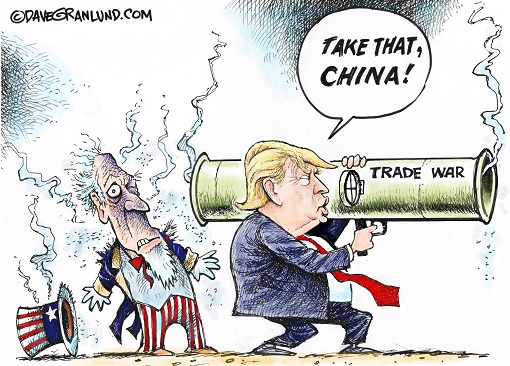
What that means is while the world economy’s dependence on China increases, China’s dependence on the world’s decreases. The 168-pages report produced by the McKinsey Global Institute’s (MGI) titled “China and the world: Inside the dynamics of a changing relationship” reveal that in 2018, China accounted for 16% of world GDP.
As US-China battle escalated from trade war to tech war, economists and analysts generally predicted that the Chinese economy, instead of the U.S., will experience a larger hit as a result of the tariffs. However, the report by McKinsey found that consumption contributed to more than 60% of China’s growth during 11 out of 16 quarters – from January 2015 to December 2018.
Essentially, that means even before Donald Trump won his 2016 presidency, China has been reducing its reliance on trade as a source of growth. And by the time Trump unleashed his tariff weapons, it was a bit too late. McKinsey says in 2017 and 2018, about 76% of China GDP growth actually came from domestic consumption, while net trade made a negative contribution to GDP growth.

In fact, as early as 2008, China’s net trade surplus amounted to 8% of the nation’s GDP. But 10 years later in 2018, that figure plunged to just 1.3% – indicating the Chinese are building a more robust and diversified domestic economy. China is increasingly consuming a larger share of output produced, partly due to its closed economy compared with developed countries like the U.S.
The study also found that China exported just 9% of its output in 2017 – down from 17% in 2007 (ten years ago), proof that China has become more self-reliant and less exposed to the rest of the world. McKinsey says – “China’s exposure to the world in relative terms has fallen because the major driver of its economic growth is no longer trade or investment but rather domestic consumption.”
In contrast, the rest of the world has become more dependent on China, so much so that China accounts for 35% of global manufacturing output. Other examples that the world needs China more than China needs the world – China accounted for 40% of global mobile phone sales in 2017, 64% of sales of battery electric vehicle sales, and 46% of semiconductor consumption.
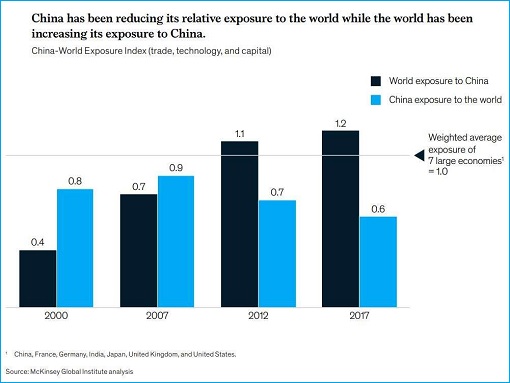
Here’s a piece of information from McKinsey research that may explain why more than 600 American companies signed letter urging – even warned – President Trump to resolve the trade dispute with China, leading to a truce at G20 Summit on 28-29 June 2019 in Osaka. According to an MSCI index, the US information technology sector makes 14% of its revenue in China.
In the same breath, Donald Trump stunningly told the press at the summit that he had decided to allow U.S. companies to sell to Huawei, despite literally putting the Chinese tech giant on the trade blacklist just a month earlier. The spectacular U-turn saw confusion and backlash from not only the business community, but also from lawmakers over national security concerns that Trump had been trumpeted.
However, according to McKinsey’s analysis of 73 economies and 20 sectors, the exposure to China varies among sectors and countries. The research report has identified three groups of countries that have the most exposure to China:
- Asian economies such as South Korea, Singapore, Malaysia, the Philippines and Vietnam. Those countries are tightly connected to China in global supply chains.
- Resource-rich countries such as Australia, Chile, Costa Rica, Ghana and South Africa, which export to China.
- Emerging markets such as Egypt and Pakistan, which are highly exposed to investments from China.
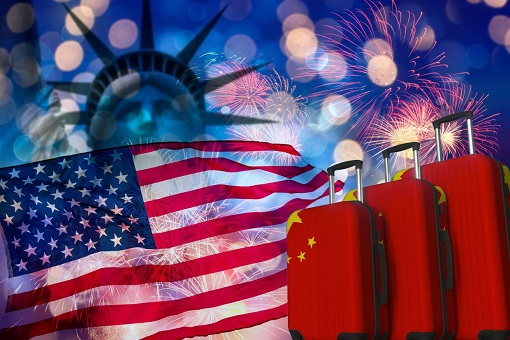
There’s another lucrative business that the short-sighted Trump has overlooked in his trade war with China – education and tourism. China is already the largest source of outbound tourists in the world – 150 million outbound trips in 2018 alone. Their spending can be equivalent to 7% to 9% of domestic private consumption of Singapore and Thailand.
But for the first time since 2003, Chinese tourists to the U.S. is falling as the Trump administration wages the trade war with China. Travel from China to the U.S. fell 5.7% in 2018 to 2.9 million visitors. Last summer, China issued a travel warning for the U.S., telling its citizens to beware of shootings, robberies and high costs for medical care.
Similarly, China’s outbound students can have a significant impact on other economies. China accounts for nearly a third of foreign students on US campuses who pour billions of dollars into the economy. Over one third of the roughly 360,000 Chinese students in the US study in “STEM fields” – science, technology, engineering and mathematics
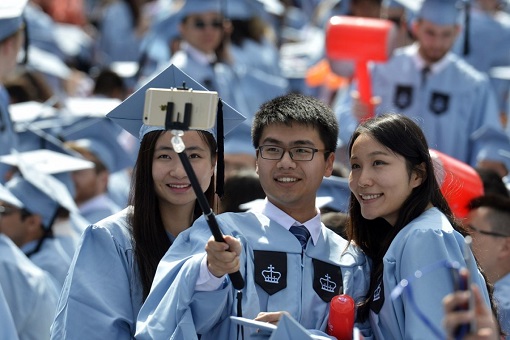
But thanks to the trade war, applications from Chinese students to study at UK universities have gone up 30% since last year as Chinese students look at destinations other than America for their studies. Chinese students contributed a whopping US$13 billion to the US economy last year, a figure that includes tuition fees and living expenses.
Other Articles That May Interest You …
- Trump Made A Mistake Of Extending Huawei Lifeline – China To Boost & Create Its Own Tech Landscape
- The U.S. Is Already In Recession – And There’s Something Wrong With The Stock Market Rally
- What Trump Doesn’t Want His Supporters To Know – China Lowered Tariffs To Everyone Except The U.S.
- China’s Trade Surplus For May Hit $41.65 Billion – Trump Threatens Xi To Meet Him At G20 Summit … Or Else
- “Best Friend” Russia To Fill China’s Food Gap As Trade War Forces The Boycott Of U.S. Meat & Soybeans
- From Trade War To Tech War – After 5G Technology, The US Aims To Cripple China’s Artificial Intelligence
- Watch Out Trump!! – China May Weaponize “Rare Earth” To Retaliate Against U.S.’ Ban On Huawei
- China’s New Message To The U.S. – “Negotiate – Sure!”, “Fight – Anytime!”, “Bully Us – Dream On!”
- Trump Is Bluffing – He Will Not Let The Stock Market Collapse, And He Lied About Forcing China To Pay $100 Billion
- China Reveals Strategy To Fight U.S. Trade War – Stop Buying American Debt

|
|
July 16th, 2019 by financetwitter
|


|

|

|

|

|

|
Comments
U must have the money to lend to poorer countries to buy your products n services. China n USA could do that. If u have no money to lend, u r forever poor until u saved enough money. China did that n now can fight the USA on all fronts with the help of Russia n other countries. So now western countries wanted cheap ha dead. That’s why all the hooha against China. But the Chinese ppl had untied n benefited from the Chinese policies. Any unrest in China will shake this equilibrium so the Chinese gov will quell any unrest by force in China by hook or by crook so that they have resources to fight the western countries to sink China. China will screw all these western countries once Uncle Sam can no longer call the shots.
China import (round figure) 100b from USA and EXPORT 500b (round figure) to USA…and it has been going on for many years… This sort of one way trade is UNSTAINABLE to USA. Period.
History has shown that China, as a powerful kingdom for several periods in the past but had fallen and collapsed many times. They rose and fell again. As Chinese, we are natrually proud of the achievements of China, but most of the times we have, and like the author, overrated China. They are going through the same cycle of rise and fall. Everything they are doing now is to preserve the continuity of Chinese Communist Party and the current leadership. Recently they changed the rules set by Deng Xiaoping that allowed only 2 terms in power for top leaders. Humans are easily blinded and corrupted by power. The same for the current leaders of China.
If you are doing business in China, invested in China or having a business that deals with China, you will know that China are doing many things to subsidize, providing tax rebates for exports and set many unfair rules for foreign companies in order to protect their own companies. Its like Malaysia, after 60 years some groups in Malaysia still want the affirmative priviliges, “tongkat” and the “handicap” advantages to continue. Same things are happening in China. China after 30 years, is no more the developing and poor country we knew. It is now is a “developed” country. Of course Chna will deny it like some groups in Malaysia. They steal trade secrets, copy others’ design illegally and steal shamelessly. They don’t respect intellectual properties or any copyrights. I may hate Trump, but I think he is doing the right thing with regards to China. This provides opportunities to other poor countries in Asia to grow. Their workers earn more than Malaysian workers.
Now when China has become powerful militarily, they lay claim to the whole of South China Sea. Now I think when India becomes powerful in future, it will lay claim to the whole of Indian Ocean, providing similar argument, it has the word “Indian”. Najib almost got away with his corruptions with the help of China.
“Stealing”, “Theft”, “Forced” are exaggerated, derogatory vocabs that only Trump-like people uses, and their sole purpose is to incite strong, but brainless emotions from Trump-like believers and supporters.
The “IP stealing theft”, or the recent, reduced term “forced IP transfer” is describing the policy where if a corporation wants to operate in China and sell to the Chinese market, they need to joint venture with a local Chinese company. If you don’t know what joint venture means, Google it. It’s a business decision, the companies voluntarily abide to Chinese policy so that they can operate and sell in the lucrative Chinese market. It’s a trade deal, there’s no stealing, no forcing, no theft.
Then why does China practice such an “unfair” policy, you say? Guess what, the policy is set and allowed by the WTO to protect developing countries. The goal is so that giant corporations from developed countries won’t dominate these weaker developing countries, and will allow local businesses to grow.
The real problem is: China, the largest economy on Earth (or second, depends on how you look at it) is a developing country by definition the WTO.
That’s why Trump is accusing the WTO, calling them “unfair”, because WTO cannot find fault in China. That’s why Trump is starting the trade war without going through WTO, because WTO will find his action against the rules.
Isn’t it funny? As the WTO was found and organized mostly by Americans and Europeans, and the rules were mostly set by them. And now that China is playing by their rules and prospering, Americans get angry and accuse China for “gaming the system”.
So such claims have been exaggerated by the West, especially the US, to score political points.
China acquired foreign IP in the following ways:
Buy IP from foreign firms by paying them more than what their IP is worth. Paying for something isn’t called “theft” the last time I checked.
Ask companies to hand over their IPs in exchange for market access. China is a sovereign country and it gets to decide the terms under which foreign companies are allowed to conduct business.
As you can see, “stealing” was never part of the MO for the Chinese government.
Foreign companies gladly sold their IPs for inflated prices to the government or handed them over for a chance to win big in China’s massive domestic markets.
Also, even this sort of practice was largely abandoned by China around circa 2012.
There’s a difference between general technology diffusion and outright IP theft, of which the latter is illegal, and should be punished according to pertinent laws. However, as we’ve seen in other posts, every country is “stealing” from one another to a more or less extent. Even neutral Switzerland used to be the biggest counterfeiter of clocks and watches in during the 18th century…
All countries without exceptions “steal” from one another. The rationale is, “Why reinvent the wheel?” The US, in particular, demonizes such a situation even though it has “stolen” technology since WW2, particularly from Nazi Germany. The question remains is what is considered “stealing?” It is debatable.
US companies steal all the time. So do Russian. So do Israelis. Japanese. Koreans. It’s probably the largest portion of international commerce. If you have the money to put together a few bribes, swindles, blackmails, whatever floats your boat, inevitably someone will. Sorry, but there are no saints around at the moment 🙂
Check out this American ‘history’ :
Samuel Slater (June 9, 1768 – April 21, 1835) was an early English-American industrialist known as the “Father of the American Industrial Revolution” (a phrase coined by Andrew Jackson) and the “Father of the American Factory System.” In the UK, he was called “Slater the Traitor” because he brought British textile technology to America, modifying it for United States use. He learned textile machinery as an apprentice to a pioneer in the British industry, then immigrating to the United States at the age of 21. He designed the first textile mills in the US and later went into business for himself, developing a family business with his sons. A wealthy man, he eventually owned thirteen spinning mills and had developed tenant farms and company towns around his textile mills, such as Slatersville, Rhode Island.
Today, the US is still ‘doing it’, sending and recruiting industrial and espionage spies to China, as China now China is far advanced in its transport system, solar energy, graphene energy storage as well as telecommunications equipment ( 5G and incoming 6G), quantum computer system, blockchain tech and space exploration.
The West, particularly the US, ought to get off their high horse braying their hysterically about others ‘stealing’ and ‘robbing’ from them when they have conveniently ‘forget’ how they, as a league of 8-nations came uninvited to plunder and pillage China with their gunboat policy and forced-fed opium, plunging millions of Chinese to be killed and starved to death; and humiliated for 200 years.
Isn’t the Americans hypocritical about this issue of subsidy ?
America only has issue with other countries subsidizing, because it’s against American interest. It has no issue subsidizing American companies.
For instance, Obama bailed out both Wall Street and the Car industry. Those are one big lump sum subsidy…..the banks received 94 billions subsidy from the Obama admin and promptly paid its CEOs and top officials tens of billions as year end bonuses ! and paid 80 billions to the 3 top car companies Ford, GM and Chrysler. He did it because having those companies fail was not in the national interest of America.
Another example is Amazon. It pays zero federal taxes. Why? Because high-tech companies get government subsidization. They get it in the form of tax break. The US government provides funds for research and development in the form of grants and loans at favorable rates and repayment terms, not only to state firms but also to private firms in many industries.
It’s hypocritical of America to condemn other countries for subsidization, when it knows very well that countries do those things for their national interest. Trump subsidized the farmers when the China stopped buying their crops in the on-going trade war…..to the tune of 16 billions last year and 24 billions this year.
Actually, it’s more fair to the public, if the subsidization is to state firms rather than private firms.
Those bankers, once you bailed them out, the money became their private property. They then used it to pay the top management. The public, however, was stuck with paying off those bad loans.
In contract, in China, after a state firm received subsidies, the government get to dictate national projects and deadline for those firms to complete. National projects like having full-country fiber coverage and 4G coverage, or having the national high-speed rail system, or having universal health care. In case of incompetence from the management of those state firms, the government can remove the managers and hire someone else. This way, the tax money paid to state firms are still used to produce public good that improves the living
[China import (round figure) 100b from USA and EXPORT 500b (round figure) to USA…and it has been going on for many years… This sort of one way trade is UNSTAINABLE to USA. Period.]
What drivel !
Is it really true that the US suffers a huge trade deficit vis-a-vis China ? One should be more careful not to taken in by all the Western propaganda.
“One thing many Americans missed in all these trade war noises is that American businesses operating in China make between $220bn (Deutsche Bank estimate) to 600bn (American Chamber of Commerce in China) sales in China annually. That is substantially larger than the 137bn American export to China.
GM, Starbucks, Coke, Pepsi, Coach, P&G, Dupont, Pfizer, etc are flourishing in China.
If you take even the low end of two estimates of the sales of American biz in China – 220bn, add back the 40bn surplus the US has with China in service trades, the trade deficit that the US has with China suddenly shrink to a very manageable level.
In fact, Deutsche Bank went further – it pointed out that if we take into consideration the sales of all the US biz operating outside the US, the US actually had a whopping 900bn surplus with the rest of the world.
Now, the problem is that all these money made overseas by American biz is shared only with the shareholders of these biz, not with the average joes in America. The rich Americans reap most of the benefits of globalization while the poor Americans have to suffer job losses.
American economy is thriving, but 90% of the Americans don’t get to share the fruits of economic growth.
I think there needs to be some fundamental change in America. Waging trade wars with all the trading partners won’t help the wealth inequality issue.”
Don’t forget the US companies in China repatriated profits back home. In 2018, they repatriation profits to the tune of US$777 billion, so that means the balance of trade is in favour of the US and not China.







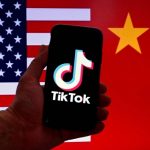







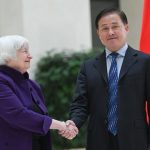












If USA is the biggest world economy because of its spending power then do not all country spend as much as they can to expand their economy? Why depend on US or China? Why they all raise their tariff against US exports to their country making of profit from their cheap export to the US? China is sucking trillions of US taxpayer and consumer money to fund their modern military, road and belt initiative projects. What say you?